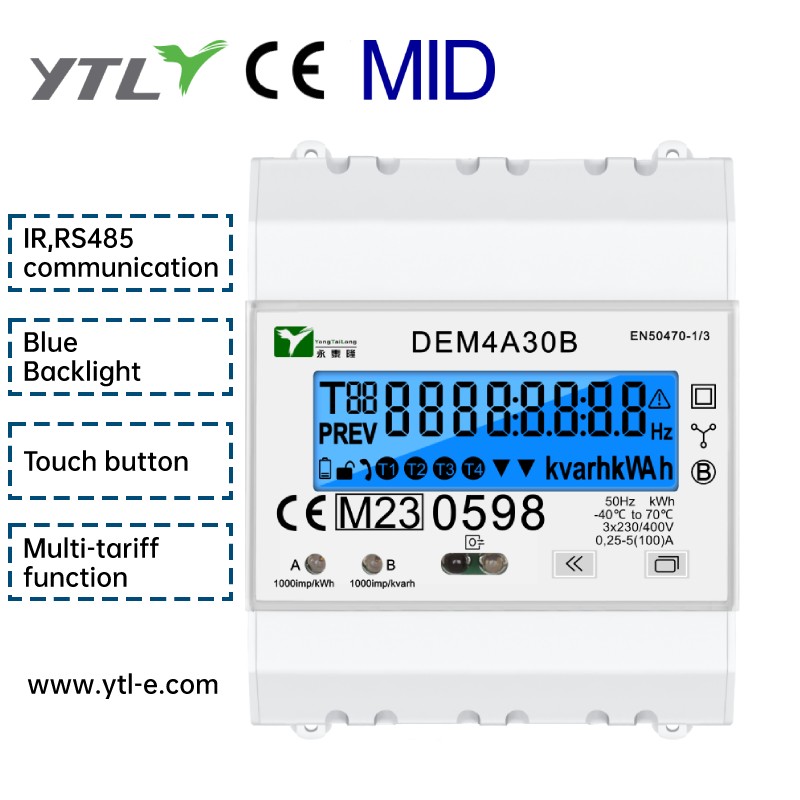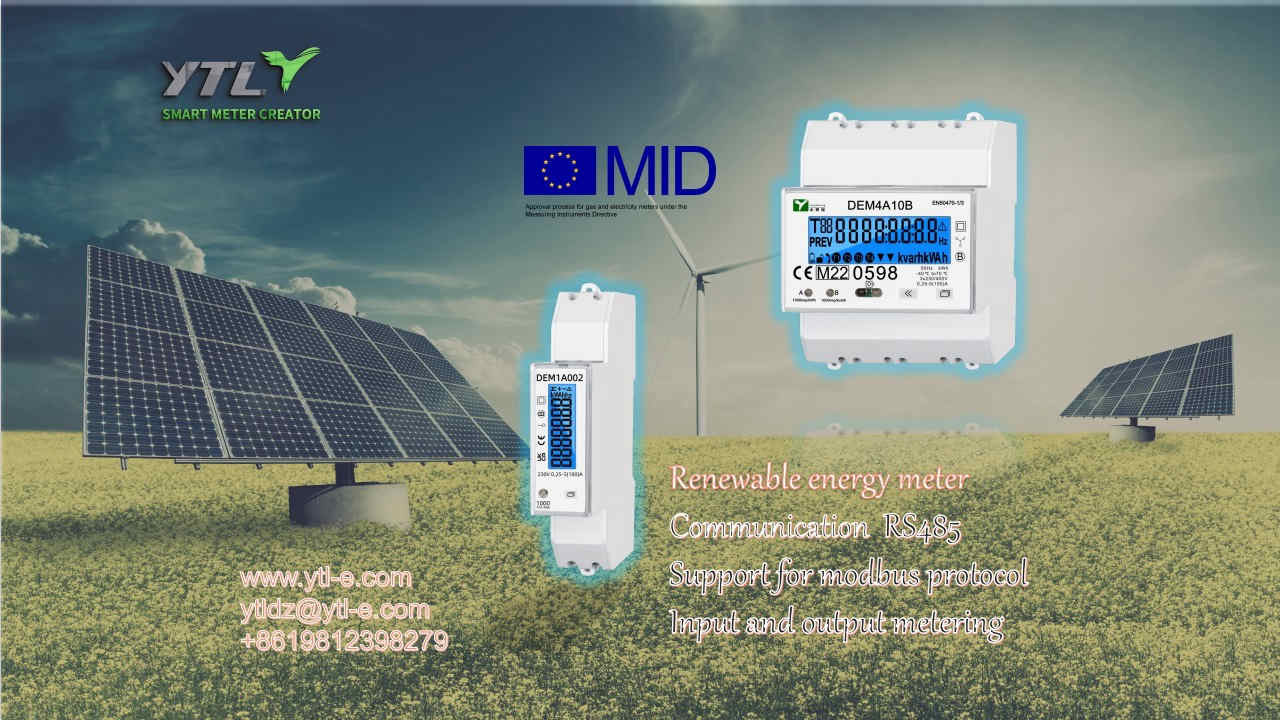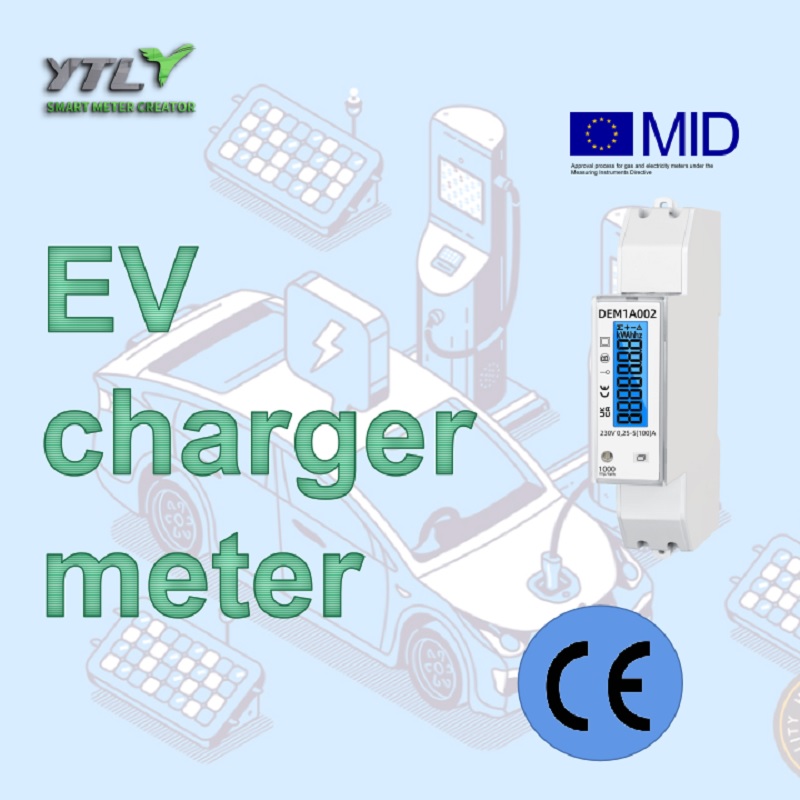MID certification (Measuring Instruments Directive) is an EU regulation designed to oversee metering devices. Products certified with MID can access the EU market, enhancing competitiveness and credibility.
MID-certified meters guarantee high standards in design, specifications, performance, and safety, with legally recognized measurement results. They serve as effective tools for power transactions, energy management, and carbon reduction efforts.
Choosing a three-phase MID meter requires consideration of the application, measurement needs, environment, and regulatory requirements. Here’s a breakdown of recommended meter types for different application scenarios:

1. Power System Monitoring and Management
l Application: Substations, power plants, and utility companies within power systems.
l Recommended Meter Type: High-precision multifunctional three-phase MID meters
l Features: Measures voltage, current, active and reactive power, power factor, energy, and harmonics. Known for high accuracy and a wide range.
l Communication: Supports RS485, Modbus, TCP/IP protocols, facilitating remote data transfer and monitoring.
l Benefits: Crucial for real-time monitoring, load management, and power quality analysis within power systems.
2. Industrial Automation and Production Line Monitoring
l Application: Production lines, machinery, and factory workshops in industrial automation.
l Recommended Meter Types:
l Industrial-grade three-phase MID meters
l Features: Enhanced interference resistance and high protection rating (e.g., IP65 or higher) for harsh environments.
l Benefits: Delivers accurate energy data to optimize production and improve efficiency.
l Three-phase MID meters with communication features
l Communication: RS485, Modbus interfaces for remote data monitoring.
l Benefits: Allows seamless integration with control or energy management systems for centralized monitoring and remote control.

3. Commercial and Residential Buildings
l Application: Shopping malls, office buildings, hotels, and residential complexes.
l Recommended Meter Types:
l Smart three-phase MID meters
l Features: Combines basic energy measurement with smart functions such as remote reading, automatic billing, and data analysis.
l Benefits: Integrates with building or energy management systems, enabling smart energy management and optimization.
l Bi-directional meters
l Features: Monitors both incoming and outgoing energy, ideal for facilities like shopping malls and data centers.
l Benefits: Supports effective energy management and cost-saving through accurate tracking of bidirectional energy flow.
4. Special Industry Applications
l Application: Renewable energy plants (e.g., wind, solar), electric vehicle (EV) charging stations.
l Recommended Meter Types:
l Meters suited for renewable energy characteristics
l Features: High measurement precision and stability for accurate energy output tracking.
l Communication: Supports specific protocols and interfaces for integration with renewable energy monitoring systems.
l Benefits: Ensures accurate metering for renewable energy production and seamless system integration.
l Dedicated meters for EV charging stations
l Features: Quick response and high-accuracy measurements for real-time energy monitoring.
l Benefits: Enables accurate billing and monitoring of energy consumption during charging, with remote control for centralized station management.
Selecting a three-phase MID meter type requires a comprehensive evaluation of application specifics, measurement demands, environmental factors, and regulatory standards. Each scenario imposes unique requirements on meter functionality, precision, and communication capabilities. Therefore, consulting professionals or referring to standards and guidelines is recommended to ensure good performance and reliability. With advancements in power systems and industrial automation, three-phase MID meters will continue to offer increasingly sophisticated solutions for energy measurement and management across industries.

 English
English 中文简体
中文简体

.jpg?imageView2/2/w/500/h/500/format/png/q/100)


.jpg?imageView2/2/w/500/h/500/format/png/q/100)



.jpg?imageView2/2/w/500/h/500/format/png/q/100)






